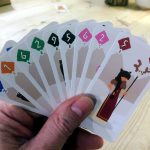Exploring the Math Behind Roulette: Are There Really ‘Lucky’ Numbers?
Roulette is a popular casino game that has been played for centuries. The game is known for its thrill and excitement, as players place bets on which number or color they think the ball will land on. Many players believe in lucky numbers or patterns that will increase their chances of winning. But is there any truth to the idea of lucky numbers in roulette, or is it all just a myth?
To answer this question, let’s take a closer look at the math behind roulette. In a standard game of roulette, there are 37 (or 38, in the case of American roulette) numbers on the wheel, ranging from 0 to 36. The odds of the ball landing on any particular number are determined by the probability distribution of the wheel. Each number has an equal chance of being hit, so in theory, no number is luckier than any other.
However, some players believe that certain numbers are luckier than others based on superstitions or past experiences. For example, a player may have won a large sum of money betting on the number 7 in the past, leading them to believe that 7 is a lucky number. While it’s true that players may experience lucky streaks or wins on certain numbers, these wins are purely random and not based on any inherent luck associated with the number itself.
In fact, the concept of lucky numbers in roulette is a classic example of the gambler’s fallacy, which is the belief that past outcomes can influence future events. In reality, each spin of the roulette wheel is independent and has no bearing on future spins. So even if a player has won several times on a particular number, it doesn’t mean that the number is inherently lucky or will continue to win in the future.
So, does this mean that there’s no way to increase your chances of winning in roulette? Not necessarily. While luck and chance play a significant role in the outcome of the game, players can use mathematical strategies to improve their odds of winning. For example, using the Martingale system involves doubling your bet after each loss, which can help recoup losses and potentially make a profit in the long run.
Ultimately, exploring the math behind roulette reveals that there are no truly lucky numbers in the game. Each spin of the wheel is independent and entirely random, so there’s no way to predict or influence the outcome based on superstitions or past wins. While luck may play a role in short-term outcomes, understanding the odds and employing strategic betting techniques can help players increase their chances of winning in the long run. So next time you play roulette, remember that it’s all about the numbers and probabilities, not luck or superstition.

